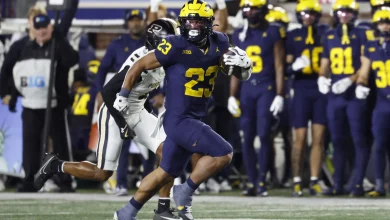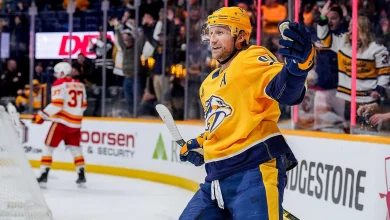Celestica (TSX:CLS) Valuation in Focus as AI Hardware Shift Prompts Analyst Upgrades and Growth Forecasts

Celestica (TSX:CLS) has come into focus as a wave of analysts revise their outlooks, following the company’s transformation into a top supplier for AI data center hardware. Investors are closely watching ahead of the third-quarter earnings release.
See our latest analysis for Celestica.
Celestica’s powerful move from low-margin assembler to a key supplier for AI hardware is showing up clearly in its chart. The share price has rocketed 209.5% year-to-date, and the total shareholder return over the past year sits at a staggering 330.9%. This kind of momentum signals confidence that Celestica’s transformation and wins in the AI data center space are just the beginning, as major tech capex increases and analyst upgrades continue to accumulate.
If Celestica’s run has you looking for the next tech breakout, consider exploring the full list of innovators in our See the full list for free..
After such an extraordinary rally, the key question is whether Celestica’s valuation still leaves room for meaningful upside, or if the market has already priced in all its future growth potential. Could now be the right time to buy, or is caution warranted?
Most Popular Narrative: 3% Overvalued
Celestica’s most widely followed narrative points to a fair value of CA$402.69 per share, which is slightly below the latest closing price of CA$415.5. This suggests analysts see limited near-term upside and believe the recent rally has pushed shares just beyond their current fundamentals.
Accelerated demand for advanced networking and AI infrastructure by hyperscaler customers is driving rapid growth in Celestica’s CCS segment, with multiple new 800G and upcoming 1.6T program ramps. This supports robust revenue expansion and greater operating leverage over the next 12 to 24 months.
Read the complete narrative.
Think the AI-powered surge is all hype? There are bold growth and margin assumptions built into this narrative, plus a profit multiple that may surprise you. The real story is in the forecast. Curious how aggressive these assumptions get? Read on for the full breakdown.
Result: Fair Value of $402.69 (OVERVALUED)
Have a read of the narrative in full and understand what’s behind the forecasts.
However, Celestica’s fortunes remain closely tied to a handful of major hyperscaler customers, as well as the pace of ongoing AI and cloud investment cycles.
Find out about the key risks to this Celestica narrative.
Build Your Own Celestica Narrative
If you have your own perspective on Celestica or want to dig deeper on the data, crafting your own take is quick and easy. Discover insights unique to your approach and Do it your way.
A good starting point is our analysis highlighting 2 key rewards investors are optimistic about regarding Celestica.
Looking for More Investment Ideas?
Keep the momentum going and put yourself in front of the next big opportunity. Don’t let great potential pass you by. Start acting on your investing goals now.
This article by Simply Wall St is general in nature. We provide commentary based on historical data
and analyst forecasts only using an unbiased methodology and our articles are not intended to be financial advice. It does not constitute a recommendation to buy or sell any stock, and does not take account of your objectives, or your
financial situation. We aim to bring you long-term focused analysis driven by fundamental data.
Note that our analysis may not factor in the latest price-sensitive company announcements or qualitative material.
Simply Wall St has no position in any stocks mentioned.
New: AI Stock Screener & Alerts
Our new AI Stock Screener scans the market every day to uncover opportunities.
• Dividend Powerhouses (3%+ Yield)
• Undervalued Small Caps with Insider Buying
• High growth Tech and AI Companies
Or build your own from over 50 metrics.
Explore Now for Free
Have feedback on this article? Concerned about the content? Get in touch with us directly. Alternatively, email editorial-team@simplywallst.com





